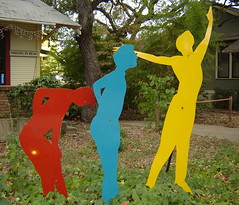Search
New PA bill would ban sexual orientation, gender identity discrimination
Twenty-one states and the District of Columbia have laws banning workplace discrimination in the private sector on the basis of sexual orientation. The Commonwealth of Pennsylvania, which currently bans discrimination based on sexual orientation and gender identity or expression in public employment, may soon become the latest state to ban it in the private sector as well.
(The term “gender identity or expression” means actual or perceived gender identity, appearance, behavior, expression or physical characteristics whether or not associated with an individual’s assigned sex at birth).
A bill to amend the Pennsylvania Human Relations Act to add these workplace protections was introduced last week in the PA Senate with some bipartisan (but most Democratic) support. The same bill was introduced in the PA House the week before. Each measure would also carry the same restrictions in housing, credit and public accommodations.
 The Employer Handbook Blog
The Employer Handbook Blog







